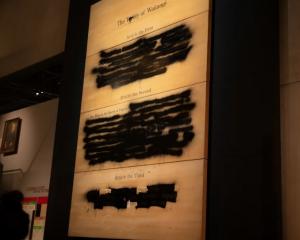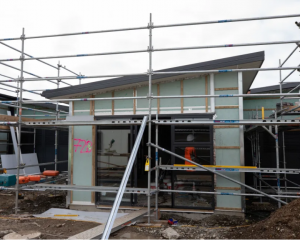A New Zealand tourist who witnessed first-hand the riots in Tibet said yesterday he felt no fear as violence erupted around him.
Dan Collins was one of a group of 25 foreign backpackers in the Tibetan capital of Lhasa at the end of an eight-day sightseeing trip.
Having visited the Potala Palace - the former chief residence of the Dalai Lama - Mr Collins and his fellow tourists were having lunch when downtown Lhasa erupted into violence.
‘‘I looked out the window and saw a whole lot of black smoke about a kilometre away, in the direction of our hotel,'' he said.
‘‘Then I looked down the street a little further and there was a whole lot of army people, and a whole lot of tanks rolled past. At that stage, we knew something was up, and all the businesses started shutting their shutters and people started getting out of there, basically.''
The tourists decided to return to their hotel, but found themselves in the thick of the violence, as Tibetans shouting pro-independence slogans began to attack Chinese property.
‘‘They were throwing rocks at buildings, lifting up the shutters of Chinese-owned businesses and setting them on fire, yelling out English slogans like ‘Get out China, Free Tibet','' Mr Collins said.
‘‘We were right in the middle of it with our cameras filming, but you never really felt much of a threat, to be honest, because they weren't really attacking us. They thought that with us being there, we could give an eyewitness account to the rest of the world . . . they didn't have any arms, just sticks and stones and anything they could find on the street that they could break something with.''
Tibetan shopkeepers had wrapped white silk scarves around the door handles of their businesses to show they were not pro-Chinese. Those buildings remained untouched, but everything else around them was smashed by demonstrators, Mr Collins said.
Having witnessed the pro-independence riot, Mr Collins planned to come back to New Zealand and relate the stories the Tibetan people had told him about life under Chinese rule.
‘‘Not many of them could speak English, but those that did came up to us said ‘Tibet has got no freedom, China gives us no freedom, we want China out,' that sort of stuff.''
Mr Collins said Chinese troops had stayed back and watched the protesters, and did not move to quell the violence for two or three hours. The tourists had been scheduled to fly out of Lhasa the next morning, but were prevented from leaving by the Chinese army.
About 1pm, their guide arranged a police escort, drove a charter bus out of the danger area, then told everyone they would be going overland to the Nepalese capital of Kathmandu.
Strife in Lhasa heightened after the tourists' departure, with reports of between 10 and 80 people being killed in clashes in the following days.
Some of the group, who wanted to head east, stayed in Tibet to wait for trains, while the rest took a long road-trip to Nepal.
‘‘It was a good 28-30 hours of driving, right through the night, with a lot of tired and scared people,' Mr Collins said.
Yesterday, Prime Minister Helen Clark said six New Zealanders were believed to be in Tibet, and all were leaving or intended to leave the troubled region.












